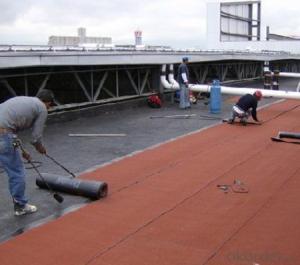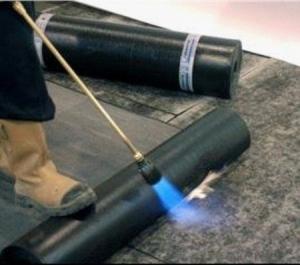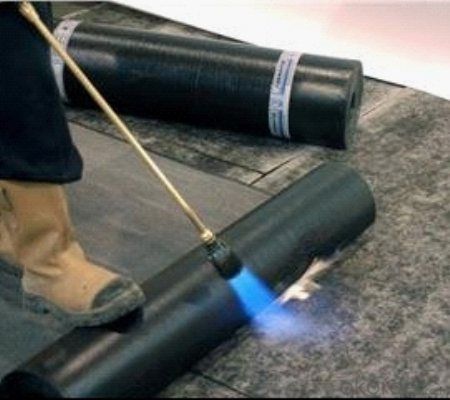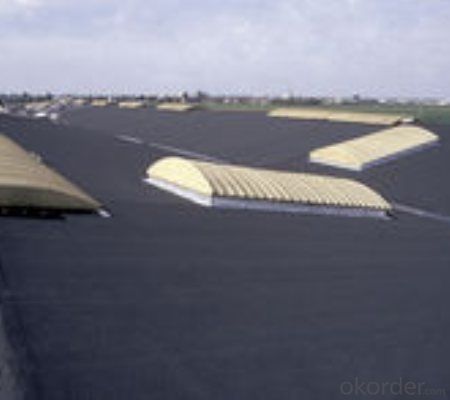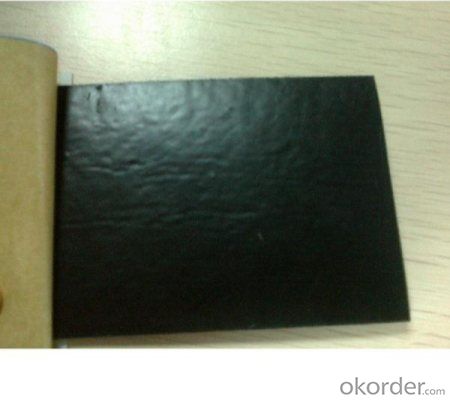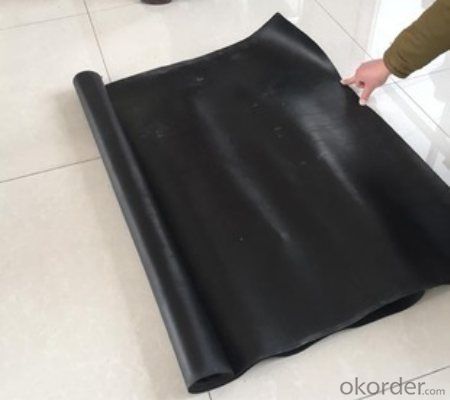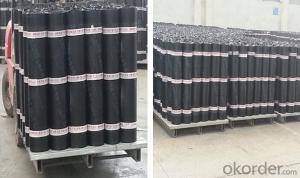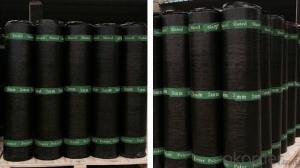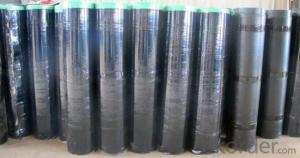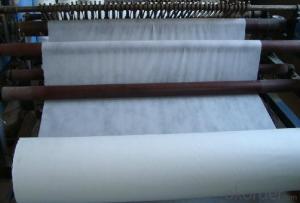SBS/APP Membrane fireproof for Waterproof System
- Loading Port:
- Qingdao
- Payment Terms:
- TT OR LC
- Min Order Qty:
- 5000 m²
- Supply Capability:
- 50000 m²/month
OKorder Service Pledge
OKorder Financial Service
You Might Also Like
SBS Membrane fireproof
Description Of SBS Membrane fireproof
SBS membrane is of high elasticity among high polymer waterproof materials and becomes a world-popular waterproofing material.adopts the world-advanced equipment of cold feeding extrusion and continuous vulcanization technology.
Main Features of SBS Membrane fireproof for Waterproof System:
1. Excellent physical and mechanical performance, High tearing resistance,Good deformation adaptability,High puncture resistance,UV resistance
Specifications of SBS Membrane fireproof
Material | Ternary Ethylene-Propylene rubber |
Size | 1.2m (width)*20m (length) or customized, weldable type 2.05m or 4m width |
Thick | 1.2mm, 1.5mm, 2.0mm |
Pattern | Non-reinforced (homogeneous) |
Certificate | ISO9001/14001 |
Applications of SBS Membrane fireproof for Waterproof System:
1.Roofs, Basement, Toilets
2. Geosynthetic liner for swimming pool, channels, irrigation system
IMages of SBS Membrane fireproof for Waterproof System:
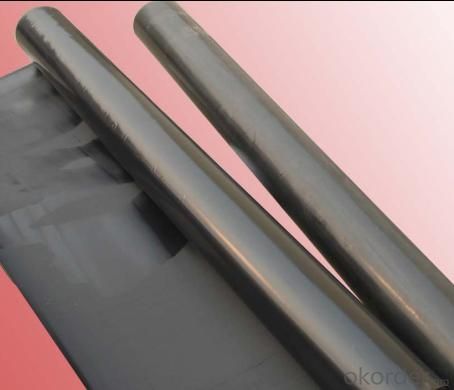
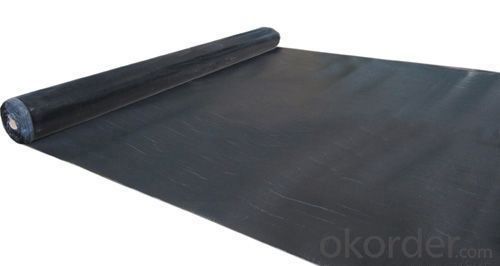
FAQ:
1. What are we supplying?
We are specialized in producing Colorful Asphalt Roof Shingle, SBS/APP modified bitumen waterproof membrane, Self adhesive bitumen waterproof membrane, EPDM rubber roofing membrane, Single Component Polyurethane Waterproof Coating, and Spray Polyurea Waterproof Coating
.
2. How Many years experience do we have?
We have been exported to more than 15 countries in the past 12 years.
3. How long do we usually reply your request?
We always reply our customer within 4 hours.
- Q: Can a waterproofing membrane be used on stucco surfaces?
- Yes, a waterproofing membrane can be used on stucco surfaces. Stucco is a porous material that can absorb water, so applying a waterproofing membrane can help prevent water infiltration and damage. The waterproofing membrane acts as a barrier, preventing water from seeping through the stucco and into the underlying structure. It also helps to protect the stucco from moisture-related issues such as cracking, mold, and mildew. It is important to choose a waterproofing membrane that is specifically designed for stucco surfaces and to follow the manufacturer's instructions for proper application. Additionally, regular inspections and maintenance of the waterproofing membrane are recommended to ensure its effectiveness and longevity.
- Q: Can a waterproofing membrane be used in coastal areas?
- Indeed, the utilization of a waterproofing membrane is viable in coastal regions. Given their susceptibility to copious amounts of moisture and water exposure, it becomes imperative to implement efficient waterproofing measures. By appropriately installing and upkeeping a waterproofing membrane, one can establish a protective barrier, effectively thwarting water infiltration and averting structural damage while ensuring their longevity. Nevertheless, it is crucial to opt for a membrane specifically tailored for coastal environments as they exhibit heightened resistance to saltwater and possess superior durability to withstand the harsh coastal conditions. Moreover, routine inspection and maintenance are imperative to guarantee the continued efficacy of the waterproofing membrane in coastal areas.
- Q: Can a waterproofing membrane be used on concrete bridges?
- Concrete bridges can indeed benefit from the use of a waterproofing membrane. These membranes are widely employed to safeguard concrete structures, including bridges, against water-related harm. By applying these membranes onto the concrete surface, a barrier is formed that effectively blocks water infiltration. Their design ensures durability, flexibility, and resistance to various environmental conditions. The utilization of a waterproofing membrane on concrete bridges aids in extending their lifespan by preventing water-induced corrosion of the reinforcement steel, thereby averting structural damage. Furthermore, it mitigates the development of cracks and spalling due to freeze-thaw cycles. In conclusion, the application of a waterproofing membrane offers a highly effective solution for the protection and enhancement of the durability of concrete bridges.
- Q: Are there any specific safety precautions to consider when installing a waterproofing membrane?
- When installing a waterproofing membrane, there are various safety precautions to consider. To begin with, it is crucial to ensure that the installation team uses all necessary personal protective equipment (PPE). This may incorporate gloves, safety glasses, and appropriate footwear to prevent injuries or exposure to dangerous substances. Moreover, it is essential to work in a well-ventilated area to avoid inhaling fumes or vapors emitted during the installation process. If working in a confined space, it is necessary to take proper measures to guarantee sufficient ventilation and use suitable respiratory protection if needed. Furthermore, it is vital to adhere to the manufacturer's instructions and guidelines for the specific waterproofing membrane being installed. This involves understanding any potential hazards linked with the product, such as flammability or toxicity, and taking necessary precautions to prevent accidents or exposure. Another safety consideration is to make sure that the installation area is appropriately prepared before commencing the process. This might entail clearing any debris, cleaning the surface, and addressing any potential hazards or obstacles that could pose a risk to the installation team. Lastly, it is important to have a designated safety plan in place, including emergency procedures and easily accessible first aid kits in case of accidents or injuries. Regular safety inspections and monitoring throughout the installation process are also recommended to promptly identify and address any potential safety risks. By adhering to these safety precautions, the installation of a waterproofing membrane can be carried out securely and effectively, minimizing the risk of accidents or injuries.
- Q: Can a waterproofing membrane be used for water treatment plants?
- Yes, a waterproofing membrane can be used for water treatment plants. It can provide an effective barrier to prevent water leakage and protect the structure from moisture damage. Additionally, waterproofing membranes can help maintain the quality and integrity of the treated water by preventing contamination from external sources.
- Q: Can a waterproofing membrane be customized or tailored to specific project requirements?
- Yes, a waterproofing membrane can be customized or tailored to specific project requirements. Waterproofing membranes come in various types and materials, such as bituminous, synthetic, or liquid-applied membranes. These membranes can be modified or adjusted to meet the specific needs of a project. Customization can involve factors like the thickness or weight of the membrane, the type of reinforcement used, the method of application, and the specific performance requirements of the project. For example, a high-traffic area may require a thicker or more durable membrane to withstand heavy loads, while a project in a harsh climate may necessitate a membrane with enhanced resistance to UV radiation or extreme temperatures. Furthermore, the membrane can be tailored to different substrates or surfaces, such as concrete, metal, or wood, by using compatible adhesives or primers. This ensures proper bonding and longevity of the waterproofing system. Additionally, some waterproofing membranes offer customizable options for color or appearance, allowing them to blend seamlessly with the overall aesthetic of the project. Overall, the customization of a waterproofing membrane allows it to be specifically designed and engineered to meet the unique requirements of each project, ensuring optimal performance and long-lasting protection against water damage.
- Q: Can waterproofing membranes be used on swimming pool decks?
- Swimming pool decks can indeed benefit from the use of waterproofing membranes. These membranes are specifically designed to act as a barrier against water infiltration, making them an excellent solution for areas that are constantly exposed to water, such as swimming pool decks. By applying a waterproofing membrane to the surface of the deck, it effectively prevents any water from seeping through and causing harm to the underlying structure. Moreover, waterproofing membranes also offer protection against chemicals, UV rays, and general wear and tear, which are commonly encountered in swimming pool environments. All in all, incorporating waterproofing membranes on swimming pool decks can extend their lifespan, decrease maintenance expenses, and elevate the overall safety and appearance of the space.
- Q: Are waterproofing membranes resistant to gasoline?
- Waterproofing membranes, in general, display resistance towards gasoline. These membranes are chemically resistant and capable of enduring exposure to diverse chemicals, which includes gasoline. Nevertheless, it is crucial to acknowledge that the extent of resistance may differ depending on the particular membrane type and its composition. Certain membranes may provide superior resistance to gasoline compared to others. Furthermore, extended exposure to gasoline can potentially harm or deteriorate the membrane over time, hence it is always advised to take essential precautions and avoid prolonged contact with harsh chemicals.
- Q: Can a waterproofing membrane be used in food processing or pharmaceutical facilities?
- Yes, a waterproofing membrane can be used in food processing or pharmaceutical facilities. Waterproofing membranes are commonly used in these types of facilities to ensure that the surrounding environment remains dry and free from water damage. They create a protective barrier against moisture, preventing leaks and water penetration. This is particularly important in food processing and pharmaceutical facilities where hygiene and cleanliness are crucial. Waterproofing membranes can be applied to various surfaces such as floors, walls, and ceilings, ensuring that all areas are adequately protected. Additionally, these membranes are often made from materials that are resistant to chemicals and bacteria growth, further enhancing their suitability for use in these sensitive environments. Overall, utilizing a waterproofing membrane in food processing or pharmaceutical facilities is an effective way to maintain a dry and safe environment for the production of quality products.
- Q: Does a waterproofing membrane require any special precautions during installation?
- Yes, a waterproofing membrane does require special precautions during installation. It is important to ensure that the surface to be waterproofed is clean, dry, and free from any contaminants or loose materials. The membrane should be installed in accordance with the manufacturer's instructions, paying attention to proper overlap and seam sealing. It is also crucial to inspect the membrane for any damage or defects prior to installation. Additionally, proper safety measures should be taken, such as wearing protective clothing and using appropriate tools and equipment.
Send your message to us
SBS/APP Membrane fireproof for Waterproof System
- Loading Port:
- Qingdao
- Payment Terms:
- TT OR LC
- Min Order Qty:
- 5000 m²
- Supply Capability:
- 50000 m²/month
OKorder Service Pledge
OKorder Financial Service
Similar products
Hot products
Hot Searches
Related keywords
